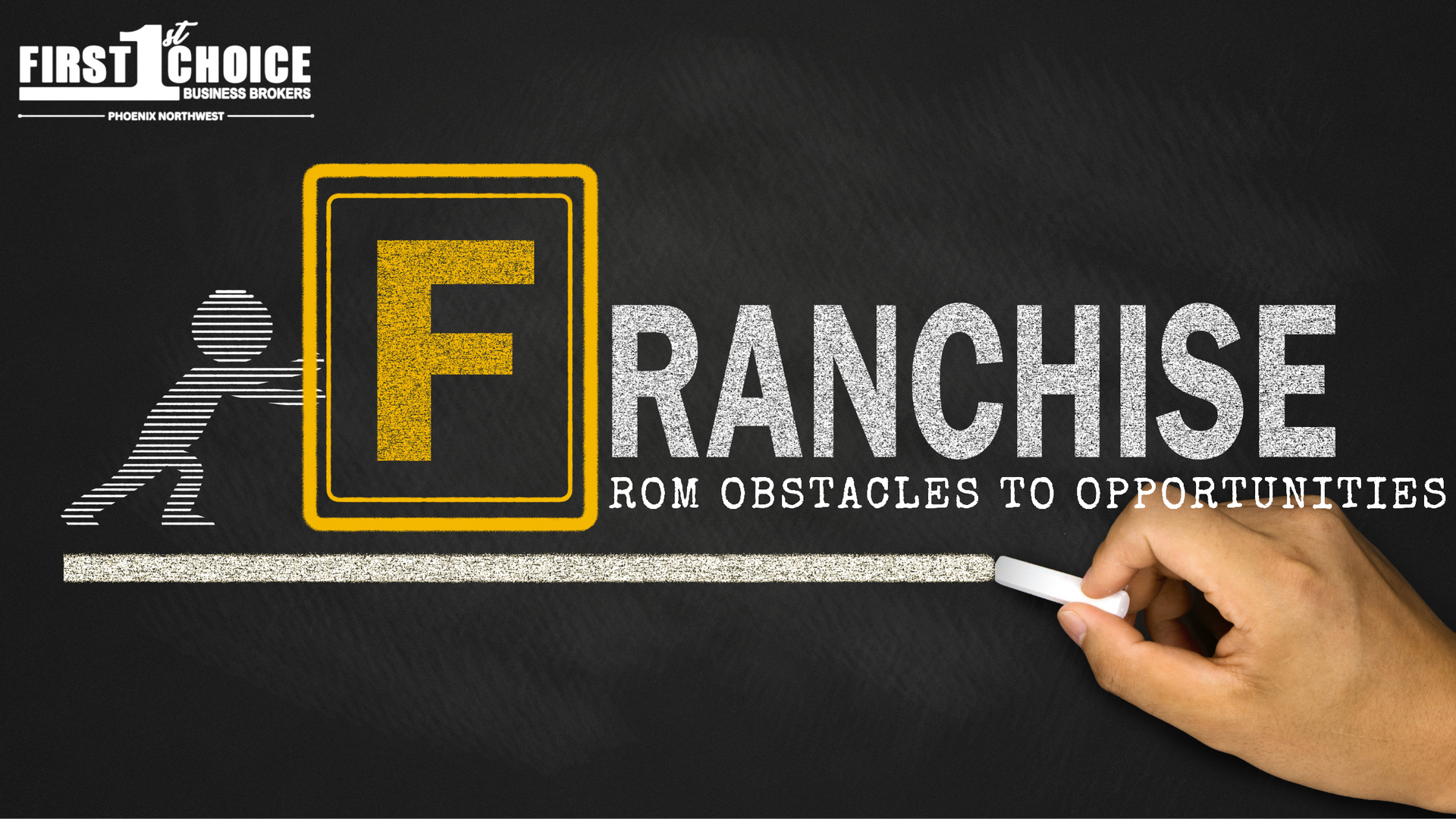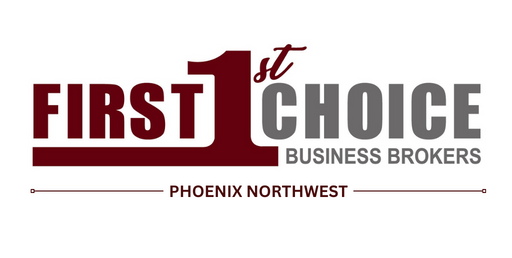Franchise Resales: How Business Brokers Handle Unique Challenges

Buying or selling a franchise resale is different from traditional business transactions. While franchise businesses offer the advantage of an established brand and proven business model, they also come with unique complexities that require specialized expertise. Business brokers play a crucial role in navigating these challenges to ensure a smooth and successful transaction. Here’s how they address the distinct aspects of franchise resales.
Navigating Franchise Agreements and Transfer Policies
Navigating franchise agreements and transfer policies is a crucial aspect of reselling a franchise. Franchise agreements often include provisions regarding ownership transfer, fees, approval processes, and other operational requirements. The franchisor typically requires approval of any new owner to ensure they meet the brand's standards, which may involve background checks, financial assessments, and training. Transfer policies also include guidelines on fees, such as transfer fees, initial franchise fees, and ongoing royalty payments. These policies can create complexities, particularly when the buyer must meet specific criteria or when the transfer process takes longer than expected.
Business brokers play a vital role in guiding both buyers and sellers through the franchise resale process. Their expertise in franchise contracts and transfer policies ensures compliance with all terms and helps facilitate smooth communication between the parties. Brokers educate clients on the key components of the transfer, coordinate with franchisors to ensure all paperwork is completed, and assist with negotiating terms. By managing expectations and navigating legal and financial requirements, brokers ensure that the transaction proceeds efficiently and without complications, leading to a successful transfer for all involved.
Assessing Brand Reputation and Franchise Performance
Assessing brand reputation and franchise performance is essential when evaluating a franchise resale. Unlike independent businesses, the value of a franchise is strongly influenced by the overall reputation of the brand and the performance of the broader franchise network. Business brokers conduct a comprehensive analysis of both the individual franchise location’s financial health and the brand’s market positioning to provide a complete picture. This dual evaluation allows potential buyers to gain a clear understanding of the franchise’s strengths, opportunities, and any potential risks that could affect their investment.
Brokers not only assess financial metrics such as revenue, profitability, and growth trends for the specific location but also look at factors like customer satisfaction, market demand, and the performance of other franchise locations. This detailed assessment ensures that buyers make informed decisions based on both the individual business and the overall brand’s reputation in the market. By offering a thorough evaluation, brokers help buyers understand the full scope of the investment, enabling them to identify both potential benefits and risks before moving forward with the transaction.
Coordinating Financial and Operational Due Diligence
Coordinating financial and operational due diligence is a critical part of franchise resale transactions. Brokers help buyers conduct thorough reviews of profit and loss statements, royalty fee structures, and key operational performance metrics. This ensures that buyers have a clear understanding of the financial health of the franchise and any ongoing costs associated with running the business.
In addition to financial assessments, brokers also guide buyers in evaluating the business’s compliance with franchise standards and operational guidelines. This includes ensuring that the franchise is meeting the franchisor's expectations in areas such as brand standards, employee training, and customer service. By overseeing these detailed evaluations, brokers help buyers identify potential red flags and make informed decisions, ensuring that no critical detail is overlooked during the transaction process.
Managing Franchisor Approval Processes
Managing franchisor approval processes is a crucial step in franchise resale transactions. Most franchise systems require prospective buyers to meet specific qualifications and undergo a thorough approval process set by the franchisor. Business brokers play a key role in helping buyers navigate this process by preparing and submitting the necessary documentation to meet franchisor criteria.
Brokers assist buyers in understanding and fulfilling the application procedures, training requirements, and any interviews or assessments mandated by the franchisor. Their expertise ensures that the buyer is well-prepared to meet the franchisor’s expectations, ultimately increasing the likelihood of approval. By guiding buyers through each step of the approval process, brokers help streamline the transaction, ensuring a smoother transition of ownership.

Valuation of Intangible Assets and Brand Equity
Franchise businesses often derive value from intangible assets like brand equity, customer loyalty, and proprietary systems. Brokers use specialized valuation techniques to account for these factors, ensuring fair pricing for both sellers and buyers. Their expertise helps avoid common pricing pitfalls and aligns expectations on both sides of the transaction.
Addressing Ongoing Obligations and Fees
Franchise ownership comes with ongoing financial obligations, including royalty fees, marketing contributions, and technology costs. Brokers help buyers understand these recurring expenses and incorporate them into profitability assessments. Clear understanding of these commitments helps buyers plan for sustainable operations post-purchase.
Facilitating Smooth Transitions and Training
Successful franchise resales often depend on a smooth transition of ownership. Many franchisors offer training and operational support to new owners. Brokers coordinate transition plans, ensuring that buyers receive the necessary training and that all parties adhere to timelines and obligations for knowledge transfer.
Conclusion
Franchise resales are often more complex than the sale of independent businesses due to the numerous factors that must be carefully considered, including franchise agreements, brand reputation, financial performance, and compliance with franchisor policies. These transactions require specialized knowledge of the legal and operational frameworks that govern franchises. Business brokers possess the expertise to navigate these complexities by providing in-depth assessments of both the franchise’s individual performance and the broader brand’s standing. They also understand the intricacies of franchisor relations, ensuring that all parties meet the required qualifications and follow the correct procedures throughout the sale process. This level of expertise helps minimize the risks that can arise from overlooked details or miscommunications, which could otherwise hinder a successful transaction.
Partnering with an experienced business broker can significantly increase the likelihood of a successful franchise resale. Brokers play a crucial role in facilitating smooth communication between buyers, sellers, and franchisors, ensuring that all steps in the process are followed correctly and efficiently. Their guidance not only helps buyers make informed decisions but also supports sellers in maximizing the value of their franchise. By offering insight into market conditions, financial readiness, and franchise-specific factors, brokers ensure that both parties are well-prepared for the complexities of a franchise sale. Ultimately, a seasoned broker provides invaluable support in securing a positive and successful outcome for all involved in the transaction.

Get in Touch:
First Choice Business Brokerage Phoenix
📍 21640 N 19th Ave Suite C9, Phoenix, AZ 85027
📞 (623) 888-6190
More Blogs For You




